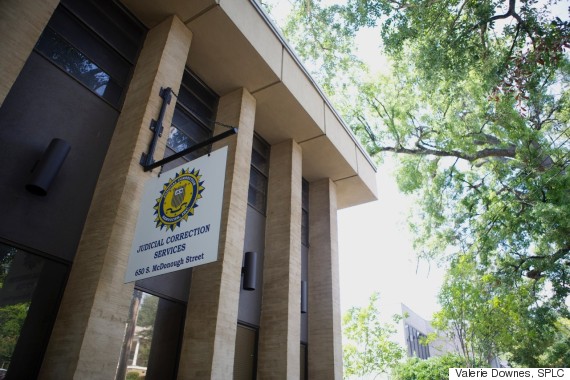For-Profit Company Threatened To Jail People For Not Paying Traffic Fines, Lawsuit Says

Weird News:
The pitch is straightforward: For no expense, a private business will help accumulate fines and charges due to cities. These for-profit corporations, labeled as probation services companies, don’t charge metropolitan areas any such thing.Alternatively, these organizations put people who can’t afford to pay for fines, such as for example site visitors seats, on cost plans that slam these with expensive charges, then dishonestly threaten people who have prison time when they don't generate payments, relating to a federal suit filed Thursday from the Southern Poverty Law Center.
The suit alleges that an Atlanta-based business labeled as Judicial Correction Services (JCS) in addition to town of Clanton, Alabama, violated national racketeering law and Alabama state law by placing citizens on what is recognized as "pay-only probation" -- basically, threatening residents with prison time if they can't pay costs and fines.
Relating to the suit, Clanton resident Roxanne Reynolds was placed on a repayment strategy with JCS because she couldn’t pay $1,632 in website traffic passes, judge costs and a failure-to-appear good. A mother of three and currently struggling financially, Reynolds fell behind on her repayments after she was clinically determined to have several sclerosis and needed to overlook three direct months of work on her job at an auto-parts plant.
Reynolds eventually paid their debt to Clanton, but it got her 15 months and value her four times in jail and $610 in charges settled to JCS, in accordance with the fit.
The monetary toll ended up being big, but therefore had been the psychological load, Reynolds informed journalists in a convention telephone call positioned by the SPLC on Thursday. "Every time I left the JCS building I became therefore scared that we would break-down and weep,” she said.
Essentially, Reynolds had financed the collection of her very own fines by having to pay an exclusive, for-profit company 37 % significantly more than she owed with the city, in line with the suit. Reynolds' experience is a good example of what the fine-collection sector phone calls the "offender-funded design" of okay collection.
JCS initially declined to comment on your situation, but questioned The Huffington Post to call-it back. HuffPost kept an information that ended up being perhaps not returned and tried to depart additional messages, however the company's vocals mailbox ended up being full. Regulations firm symbolizing the town of Clanton performed not react to a request for remark.
The SPLC fit states JCS developed plans with minimum month-to-month payments of $140, $40 of that have been charges paid straight to JCS.
The fees accumulated, the SPLC said, always had priority during the municipal good. If a resident could only generate a limited payment 30 days, JCS compiled its full $40 charge, in accordance with the fit, and the town got whatever was remaining.
And if people couldn’t spend enough to cover JCS’ fees, the organization threatened all of them with jail time, the suit says, in violation of state and federal law.
JCS frequently suggested it operated according to the energy for the government, based on the match. Under the agreement together with the town of Clanton -- which JCS won without a public bid last year -- the company’s workers get to phone by themselves “probation officers,” according to the fit. From the conference call with reporters, SPLC lawyer Sam Brooke asserted that JCS employees would walk into conferences with people who couldn’t create payments wearing handcuffs to their devices.
JCS' methods, and lawsuits resistant to the organization, have actually previously been covered of the New Yorker, the brand new York Times plus the Atlantic. In 2014, the SPLC involved funds with Montgomery, Alabama, over the fine collections. This is why, the city ended the agreement with JCS.
A 2014 Human Rights:
Watch document estimated that significantly more than 1,000 court systems throughout the U.S. utilize the same privatized okay and fee collection programs.Municipal utilization of private companies to get the fines seems to be on an upswing due to many urban centers' growing strapped finances. Smaller spending plans can mean that whenever towns look to increase resources, they don't really have the methods to collect those fines themselves. Overall, nevertheless, powerful historical information in regards to the utilization of these practices does perhaps not exist mainly because exclusive probation businesses mostly deal with city or state process of law consequently they are generally not clear with their own business methods.
The number of specific situations designated to exclusive probation services businesses by those court systems is incredible. New York Times' Thomas Edsall noted that the HRW document discovered that in "Georgia in 2012, in 'a state of lower than 10 million people, 648 process of law designated more than 250,000 instances to personal probation companies.'"
0 comments:
Post a Comment